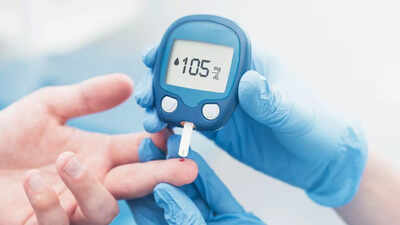For individuals managing diabetes, maintaining stable blood sugar levels is a continuous effort. A particularly challenging aspect is the "Dawn Phenomenon," characterized by elevated blood glucose levels upon waking. This natural occurrence can be perplexing, but understanding its causes and management strategies is crucial for overall health.

Blood sugar, or blood glucose, represents the amount of glucose in the blood, serving as the body's primary energy source. The Dawn Phenomenon refers to the natural increase in blood sugar levels that occurs in the early morning hours, typically between 4 a.m. and 8 a.m. This is triggered by the release of hormones like cortisol and growth hormone.
Studies indicate that the Dawn Phenomenon affects over 50% of individuals with Type 1 or Type 2 diabetes. Monitoring blood sugar levels in the morning is essential for tailoring personalized management plans, including adjustments to:
According to the American Diabetes Association, the primary cause is decreased insulin activity. Between 3 a.m. and 8 a.m., the body releases hormones, stimulating the liver to increase glucose production for energy upon waking. However, in individuals with diabetes:
Consequently, blood sugar levels rise, leading to elevated morning readings.
The main indication of the Dawn Phenomenon is high morning blood sugar levels, detectable through glucometer readings or continuous glucose monitoring (CGM) devices. When significantly elevated, symptoms may include:
Continuous glucose monitoring (CGM) is the most effective method for detecting the Dawn Phenomenon, tracking glucose levels 24/7 and providing a comprehensive view of glucose fluctuations. Healthcare providers can also analyze patterns of consistent glucometer readings to identify the phenomenon. This helps to:
Unmanaged Dawn Phenomenon can result in consistently high blood sugar levels, increasing the risk of diabetes complications, such as:
Prolonged periods of high blood sugar can negatively impact long-term health outcomes.
Some lifestyle adjustments and home remedies may help lower morning blood sugar levels:
If experiencing high blood glucose levels frequently (more than three times in 2 weeks), consulting a doctor is advisable. Individuals with diabetes should seek personalized advice from their doctor before trying home remedies or making medication changes.
The timing of blood sugar tests is crucial, as levels fluctuate after carbohydrate consumption:
To manage blood sugar spikes related to the Dawn Phenomenon, individuals with diabetes can try several strategies:
If elevated morning blood sugar levels persist, seeking individualized advice from a healthcare provider is essential. Consistency with routine and regular follow-up appointments can significantly reduce the risk of complications associated with the Dawn Phenomenon.
Newer articles
Older articles
 Gavaskar Calls for Kuldeep Yadav's Inclusion in Second Test Amid Bumrah Fitness Concerns, Cites Edgbaston Spin Advantage
Gavaskar Calls for Kuldeep Yadav's Inclusion in Second Test Amid Bumrah Fitness Concerns, Cites Edgbaston Spin Advantage
 Indian Astronaut Shukla Arrives at ISS, Ushering in New Era for Space Program
OR
India Celebrates as Shukla Reaches ISS, Advancing Ambitious Space Goals
Indian Astronaut Shukla Arrives at ISS, Ushering in New Era for Space Program
OR
India Celebrates as Shukla Reaches ISS, Advancing Ambitious Space Goals
 Rishabh Pant Revolutionizing Cricket, Says Greg Chappell
Rishabh Pant Revolutionizing Cricket, Says Greg Chappell
 Toxic Workplace Warning Signs: Spot the Red Flags Early
Toxic Workplace Warning Signs: Spot the Red Flags Early
 Global Immunization Crisis: Millions of Children at Risk as Vaccine Coverage Lags, Study Reveals
Global Immunization Crisis: Millions of Children at Risk as Vaccine Coverage Lags, Study Reveals
 Moto G54 Price Slashed in India: Check Out the Discounted Rates and Specs
Moto G54 Price Slashed in India: Check Out the Discounted Rates and Specs
 Indian Cricket Star Mukesh Kumar and Wife Divya Singh Announce the Arrival of Baby Boy
Indian Cricket Star Mukesh Kumar and Wife Divya Singh Announce the Arrival of Baby Boy
 IRCTC Launches AI Chatbot 'AskDisha 2.0' to Revolutionize Train Ticket Booking and Customer Service
IRCTC Launches AI Chatbot 'AskDisha 2.0' to Revolutionize Train Ticket Booking and Customer Service
 Cummins Lauds Australia's Dominant Start to WTC Campaign After West Indies Series Win
Cummins Lauds Australia's Dominant Start to WTC Campaign After West Indies Series Win
 Smith Targets Test Return After Innovative Baseball Cage Rehab in New York
Smith Targets Test Return After Innovative Baseball Cage Rehab in New York